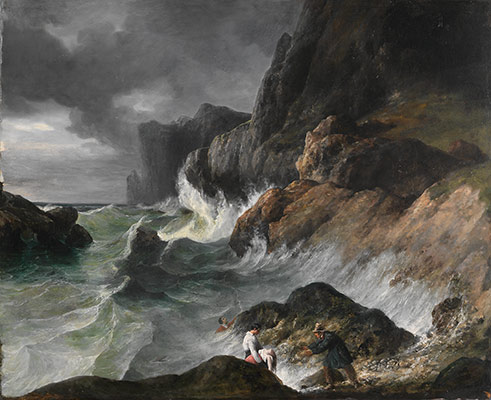Romanticism was introduced during the 18th century, as a way of almost appreciating life and the natural emotions of the human, like love which was the main aspect of romanticism. To be romantic was to be almost gentle, loving, and in some ways insane and to appreciate the beauty in even the small things. Many romantics where very against the view of science and logic.

One artist during this period was very much for the topic romanticism, especially in his art. In fine detail and accuracy, he presented landscapes which could be viewed as beautiful, or immersive with what is happening in the painting, This links closely to the idea of the sublime, which in other words is a way of humbling or horrifying people. For example in the strong aggressive storms which rip down trees and create chaos, or the beautiful sight and peace of the top of a mountain which creates an extreme emotion. This closely relates to romanticism and the people/community behind it.
You could also say romantics where heavily invested in the nature of everything, the insanity and simplicity of emotion, the rhythm of nature working, like the trees swaying together in the wind, and how emotions are rarely every consistent, rather forever changing throughout situations. They hated the idea of rationalising how or why the emotions occur, rather to accept and appreciate. This is why they hated the idea of the train built by the British in this era, as it linked closely to the industrial revolution, which was completely against romanticism.

One famous story includes a poet who was very invested in the feeling of love, and his experiences in the pain, insanity, and beauty that he felt. But as no one at this time didn’t want to publish his book, (which to him was a way of expressing himself and being open to the feelings we feel) he killed himself. This was a very famous story as it was the first introduction into genre of romanticism.
This links into the subject of landscape, as during the introduction of romanticism it was very common for artists to paint huge landscapes.
